Deep in the wilderness hours from civilisation, Waking Life defines escapism.
Creating a temporary home for 3,000 people in the scorching wilderness of Portugal is an ambitious venture. Following various hygiene and logistical issues in the debut year, an eager anticipation clouded the second edition of Waking Life. It was evident the festival had taken criticism on board. Numerous spacious shaded areas littered the site, free to escape the sun whenever required. Toilets were well lit and cleaned regularly throughout day and night, both notable problems last year.

Bathing in the lake, eating breakfast under a tree or locked into Edward’s three-hour sunrise set, everything felt free from judgement at Waking Life. Ground floor DJ booths stood in understated structures, making the surroundings the focal point. Shaded pallets laced with cushions and blankets offered areas to relax and recharge without leaving the music. Aware of the 24-hour policy, the festival catered for the duration.
Instant availability of ice cold beverages around the clock eliminated the fear of dehydration or detaching from a set. Painless bar queues meant getting a drink was never a hassle and water was served in 1.5-litre bottles for less than 1.50 euros. Health and wellness was a significant motive for the festival. Juices and soft drink options took up the majority of the bar. Yoga classes ran every hour and stalls offered fresh and affordable food day and night.
Sound was an issue during the early moments of the festival. SIT’s moody minimal was swallowed by dangerous volumes on the Thursday night. Each stage hosted just one stack of speakers either side of the booth. Although the systems were clear, attempts to reach the chill out areas by boosting the volume made for an uncomfortable experience on the dance floor. A multi-speaker system distributing sound equally across the stages would have benefitted greatly. Although, by Friday the volumes were reduced and the sound was crisp across all stages.

The laid-back dynamic created a unique atmosphere. Playing to a crowd lay in hammocks and dancing in the sand seemed to alleviate any pressure on artists to keep people dancing. A mindful and patient crowd gifted space for brave set times without fear of stagnation during more experimental acts.
Friday’s flow felt as if it had been rehearsed all summer. The Outro Lado stage hosted 12 artists from midday through to Saturday, filling up at around 2 pm in anticipation of Jan Jelinek’s meditative live set. Sat amongst his hardware on a sofa in the crowd, Jelinek presented his glitchy, jazz-infused sound as if it was to some friends in his living room. Photay’s energetic live set spawned a dance floor following Jelinek. Dreamy orchestral-esque sounds looped over samples of nature whilst Photay jammed on several drum pads.

Contextual awareness was a real highlight of the festival. Artists were present enjoying the festival days prior to their set, a priceless benefit to the continuity of the programme. Exploring the site gave artists time to consider their selections, honouring the duration and vibe of the weekend which was evident in the consistently seamless transitions between sets.
Call Super paid homage to Aretha Franklin as the sun set over the lake, closing a three-hour masterclass with I Say A Little Prayer drew an emotional response from the crowd. Thomas Melchior took the sunset slot on Sunday evening. Tranquil and content, the veteran presented a flawless showcase of his signature patient minimal. Melchior’s remix of ‘Mandingo – Universe II’ was a highlight as the sun set behind the booth. Impossible to distinguish one record from the next, Melchior played arguably the set of the weekend.
Everything from the relaxed security presence to daily meditation sessions set an immersive tone at the festival. Limited phone signal alongside the 24-hour music policy removed any perception of time. Whether you wanted to grab food at 5 am, attend a sunrise yoga session or lock into four hours of Rhadoo, the flexibility of around the clock programming made everything feel natural.
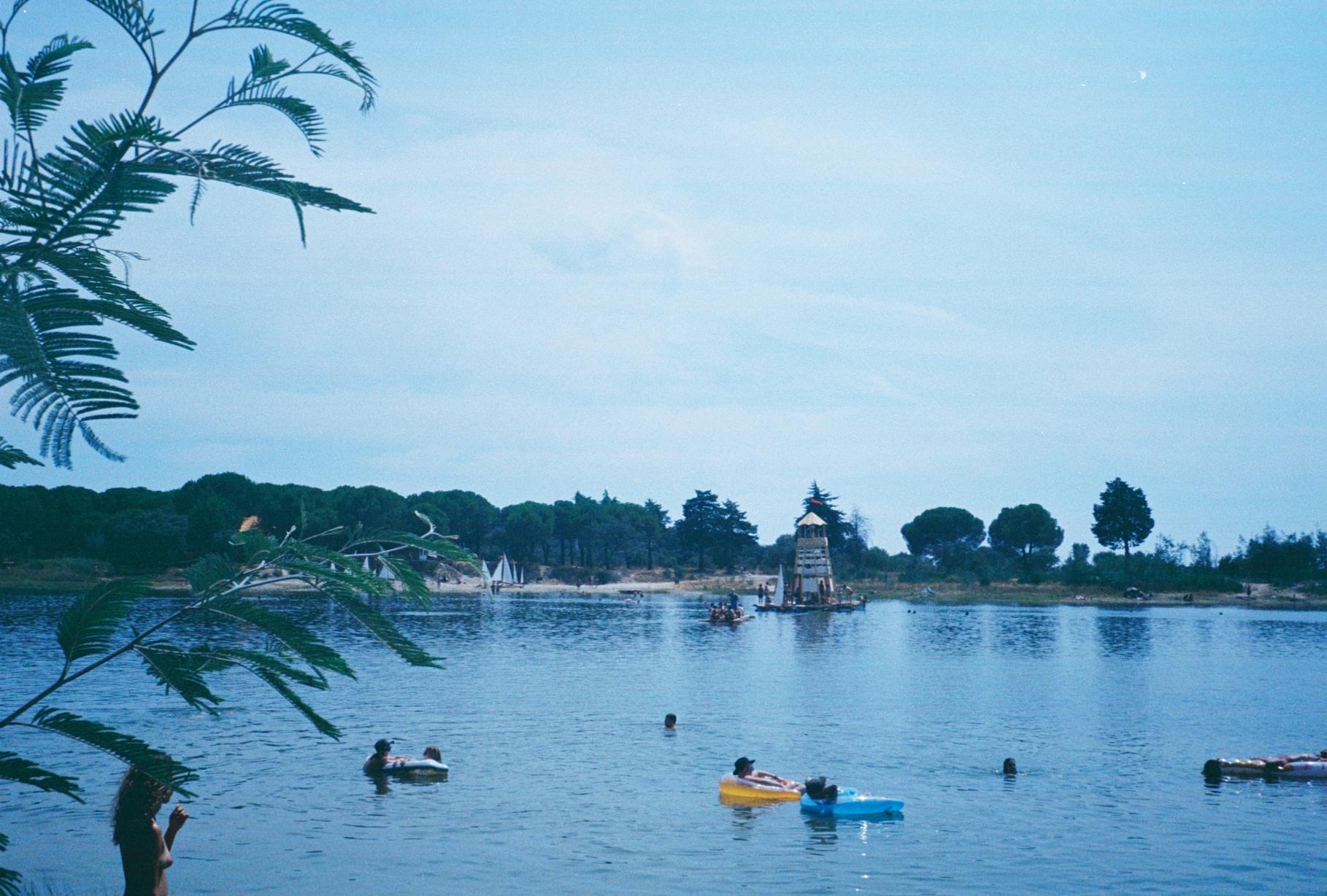
Benefiting both the artists and punters, this free roam dynamic created the rare opportunity for artists to be bold, comfortable playing the deeper end of their record collection without fear of boring the crowd. Ferro presented a much darker Romanian palate taking over from SIT on Thursday evening, gifting insight into the artists tastes outside his common tech-house sound pioneered by the likes of VBX and Yoyaku.
Even the smallest details appeared to be thought out across the site. Urinals were placed on a raised platform angled towards the stages, creating a viewing platform of the festival. These simplistic touches eliminated any connection to reality, thoroughly immersed in sensory utopia.
Careful curation of the lineup managed to tap into a variety of tastes. Heads in programmes was a frequent sight as well as discussions of how people discovered the festival. Many people had found Waking Life through an artist others had never heard of.
A sense of unity was present over the weekend. From democratic drink prices to the laid back booth designs, trust in the crowd ruled out any worship-like hierarchy often associated with large-scale events. A “live in the moment” section featured on the set times programme regarding mobile phone usage, encouraging people to ‘disconnect from the digital realm and plug into the natural world’.

Talks were hosted throughout the day at the festival’s cinema stage. A debate surrounding sustainability revealed the festival’s ecological electricity system. During the day, 54 solar panels charge the site’s battery packs which are then used to power the entire production area at night. This system saves the festival 3155 litres of fuel and 8455kg in CO2 emissions, creating enough energy to power 4 households.
Every interaction is an experience at Waking Life. Considering the festival is in only it’s second year, the future looks bright for the Portugal collective.
__
Waking Life returns to Crato, Portugal from 14-19 August 2019.
More info: https://wakinglife.pt/



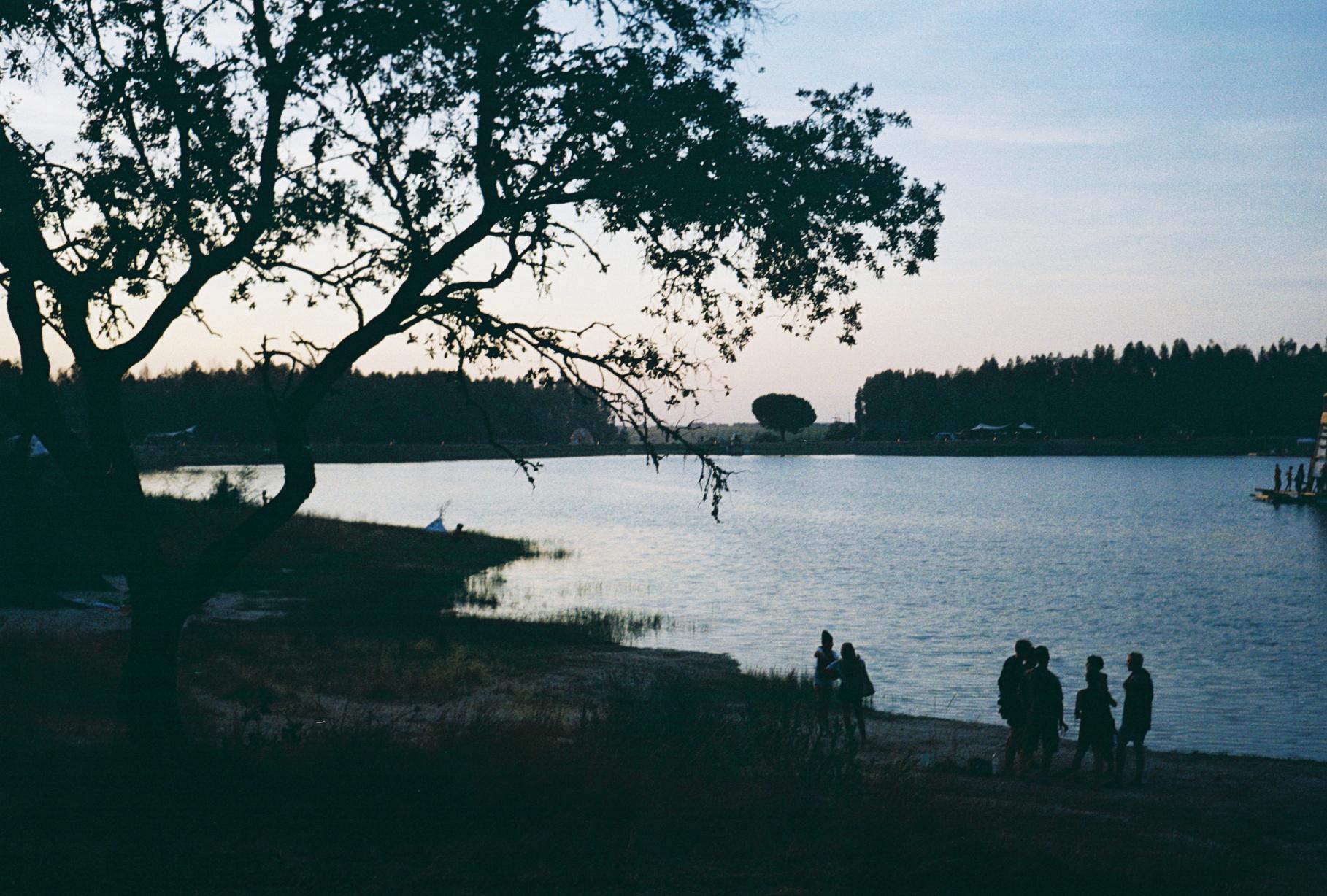

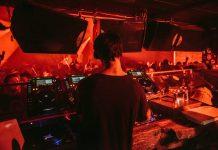

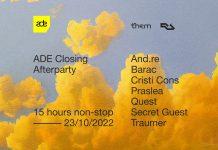
![Trommel.144 – Ferro [recorded live at Sunwaves 28]](https://trommelmusic.com/wp-content/uploads/2022/06/Ferro-218x150.jpg)
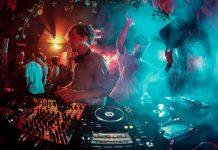
![Premiere: A2 – mrelss – Season of Reason [AMAM044]](https://trommelmusic.com/wp-content/uploads/2026/02/label_side_A-Alessio-Mereu-324x235.jpg)
![Premiere: 2 – Santon – Only a Test (Alain de Saracho Remix) [SDR012]](https://trommelmusic.com/wp-content/uploads/2026/02/Santon-Only-a-Test-EP-Artwork-Alain-de-Saracho-100x70.png)
![Free Download: Zombies in Miami – What Ya Doing [TFD128]](https://trommelmusic.com/wp-content/uploads/2026/02/photo_2026-02-12-10.38.24-e1770892750337-100x70.jpeg)
![Premiere: 1 – DAT (Italy) – Not My Plan [SENS001]](https://trommelmusic.com/wp-content/uploads/2026/02/IMG_9750-Sensazione-Stupenda-100x70.png)
![Premiere: B1 – Kolhida – Break And Escape (Cezar Lazãr Remix) [TTM003]](https://trommelmusic.com/wp-content/uploads/2026/02/IMG_2883-Aleksandr-Gocheleyshvili-100x70.png)
![Premiere: A1 – JJ Fortune – Design [LNS10]](https://trommelmusic.com/wp-content/uploads/2026/02/1188556-100x70.jpg)
![Premiere: A1 – Alexander Skancke – Saga Of Subvision [QRK015]](https://trommelmusic.com/wp-content/uploads/2026/02/photo_2026-02-03_17-31-24-100x70.jpg)

![Premiere: A1 – Light Blue File – JUNIOR [RCR002]](https://trommelmusic.com/wp-content/uploads/2026/02/RCR.002.FRONT_.LABEL-Will-Gilliland-100x70.png)
![Premiere: A2 – Lisovskyi – Just One Good Whiff [FIB004]](https://trommelmusic.com/wp-content/uploads/2026/02/B-100x70.png)